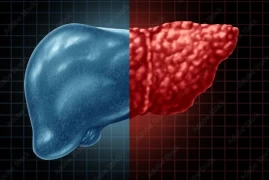
Can water be poisonous to life?
- Can water be poisonous to life?
- Can Water Poison Life?
- What Are the Causes of Water Intoxication?
- What Are the Symptoms of Water Intoxication?
- How Can Water Intoxication Be Prevented?
- In Conclusion:
Can Water Poison Life?
Water intoxication (Hydration Poisoning) is a condition that occurs when there is an excessive accumulation of water in the body or when water is consumed too rapidly. Medically known as "hyponatremia," this condition signifies a lower-than-normal level of sodium in the bloodstream. Sodium is a crucial electrolyte for the body and is necessary for the normal functioning of cells. Excessive depletion of sodium levels can lead to cell swelling and disruption of brain functions.
What Are the Causes of Water Intoxication?
The primary cause of water intoxication is the body's reaction to either an excessive response to water or excessive consumption of water in an environment with lower-than-normal sodium levels. Sodium is an essential electrolyte for the body and is necessary for the normal functioning of cells. Here are the main causes of water intoxication:
- Excessive Water Consumption: Especially when a large amount of water is consumed in a short period, it can strain the kidneys' ability to process the excess water. In this situation, the body attempts to lower sodium levels.
- Intense Physical Activities: Prolonged and intense physical activities result in excessive sweating and subsequent loss of sodium from the body. If only water is consumed during this time, an electrolyte imbalance can occur.
- Illnesses and Medications: Some illnesses, especially conditions affecting the kidneys, heart, and liver, can disrupt the body's water and sodium balance. Similarly, diuretic medications that increase sodium excretion can lead to water intoxication.
- Poor Diet: Diets low in sodium or excessive consumption of water combined with meals can contribute to water intoxication.
- Hormonal Changes: The levels of certain hormones in the body can affect the balance of water and sodium. Changes in antidiuretic hormone (ADH) levels, for instance, can lead to water intoxication.
- Continuous Vomiting and Diarrhea: Conditions such as continuous vomiting and diarrhea can result in significant sodium and water loss, potentially leading to water intoxication.
Water intoxication typically arises from a combination of the above-mentioned causes. The presence of one or more of these factors can increase the risk of water intoxication. Therefore, it is important to maintain balanced water consumption and pay attention to sodium balance in the body.

What Are the Symptoms of Water Intoxication?
Symptoms can range from mild to severe. Initially, symptoms may be mild, but as the condition progresses, more serious health problems can occur. The symptoms of water intoxication include:
- Nausea and Vomiting: Water intoxication often begins with nausea and vomiting. When the body's fluid balance is disrupted, the stomach can become upset, triggering the vomiting reflex.
- Headache: Headaches are another common symptom of water intoxication. A drop in sodium levels can cause brain cells to swell and be compressed, leading to headaches.
- Fatigue and Weakness: Due to electrolyte imbalances in the body, you may experience fatigue, weakness, and a general lack of energy.
- Swollen Hands and Feet: Reduced sodium levels can affect the body's fluid balance, leading to swelling or edema. As a result, your hands and feet may become swollen.
- Frequent Urination: Water intoxication causes the kidneys to attempt to eliminate excess water through urination. This can lead to frequent urination (polyuria).
- Lack of Concentration: Water intoxication can affect brain functions, resulting in a lack of concentration, difficulty focusing, and mental confusion.
- Rapid Breathing: Imbalances in fluid levels due to reduced sodium can disrupt the body's fluid balance. In this case, the body may breathe faster to balance the respiratory system.
- Neurological Symptoms: In severe cases, excessive drops in sodium levels can result in brain swelling. This can cause neurological symptoms such as memory loss, seizures, confusion, and even coma.
The symptoms of water intoxication can vary from person to person and even mild symptoms can develop into serious health problems.
How Can Water Intoxication Be Prevented?
Taking the following precautions is important to prevent water intoxication. Balanced water consumption and maintaining electrolyte balance can help minimize the risk of water intoxication:
- Maintain Balanced Hydration: It is important to know your daily water needs and avoid overconsumption. Avoid drinking more water than necessary. Drink when you're thirsty.
- Be Mindful of Fluid Loss During Physical Activities: Instead of drinking water frequently during prolonged and intense physical activities, consume water at regular intervals and sip it slowly. Consider opting for electrolyte-containing beverages to balance the sodium and other electrolytes lost through sweating. During activities that require prolonged hydration, such as marathon running, drink water at regular intervals and sip it slowly.
- Monitor Fluid Loss: To understand the amount of fluid you've lost after physical activities, you can use body weight measurements. This will provide a better idea of maintaining fluid balance.
- Preserve Electrolyte Balance: Maintaining electrolyte balance during water consumption is important. Especially during prolonged and intense physical activities, using electrolyte-containing beverages or electrolyte supplements can be helpful.
- Pay Attention to Your Diet: A balanced diet is essential for maintaining electrolyte balance in the body. Avoid diets low in sodium and refrain from excessive water consumption while eating.
- Consult Your Doctor Regarding Medical Conditions and Medications: If you have kidney problems or medical conditions, consult a medical expert to manage fluid and electrolyte balance. Additionally, avoid adding excess medication or supplements to your water intake without your doctor's approval.
- Ensure Your Baby and Children Stay Hydrated: Especially in newborns and young children, whose kidneys are less capable of regulating fluid and sodium compared to adults, avoiding excessive water consumption is important.
- Being Mindful While Drinking Water: Be conscious when consuming water. Monitoring the amount of water you drink and avoiding excessive consumption can reduce the risk of water intoxication.
Methods of preventing water intoxication can vary based on individual needs and lifestyles. Balanced water consumption and attention to electrolyte balance are fundamental steps to minimize the risk of water intoxication.
In Conclusion:
Water intoxication typically arises from excessive water consumption and can lead to serious health problems. Maintaining balanced water consumption and being cautious during physical activities are fundamental in preventing water intoxication. In mild cases, consuming drinks containing adequate electrolytes can be helpful. If severe symptoms occur, seeking immediate medical attention is important.






